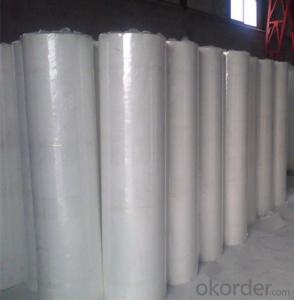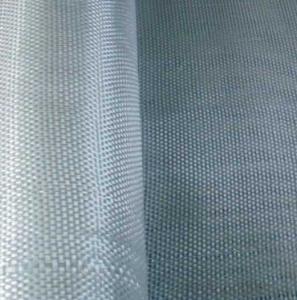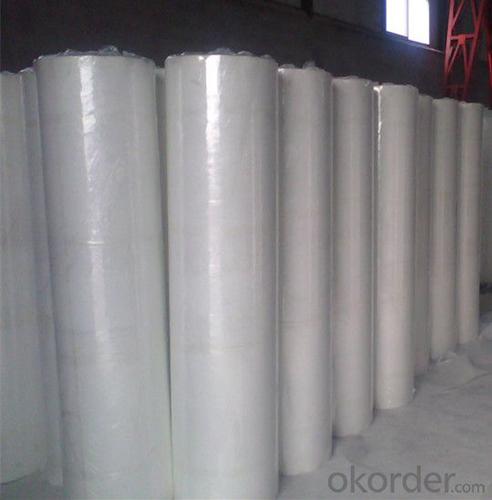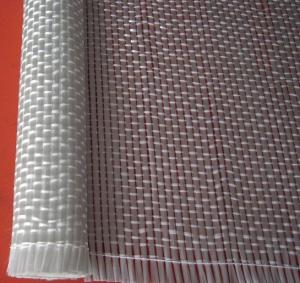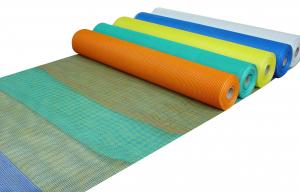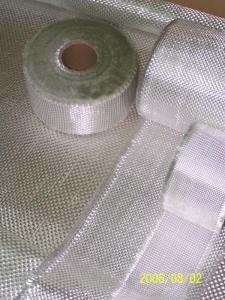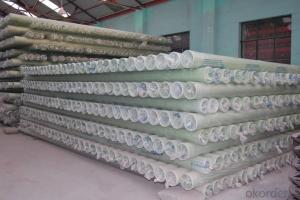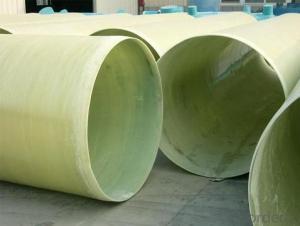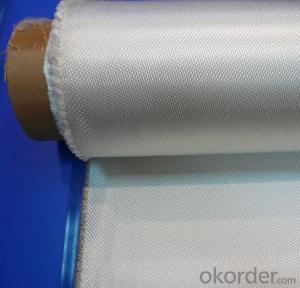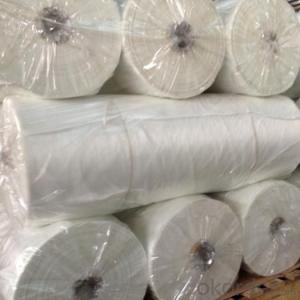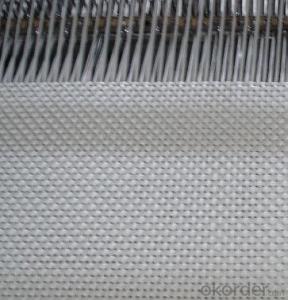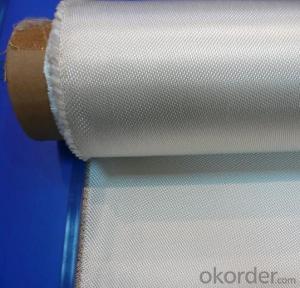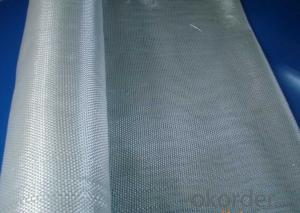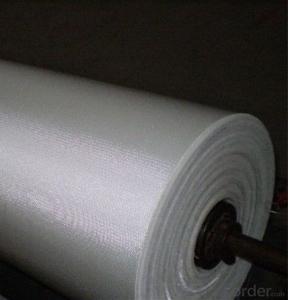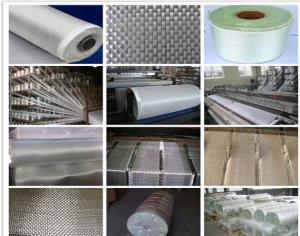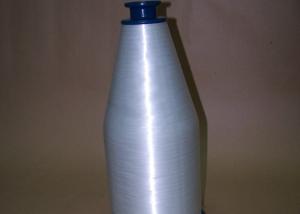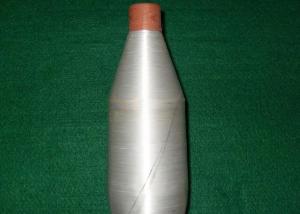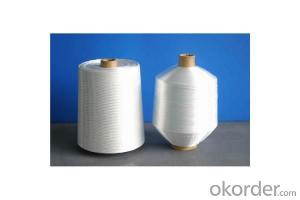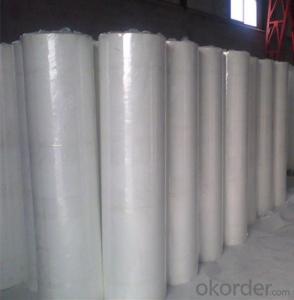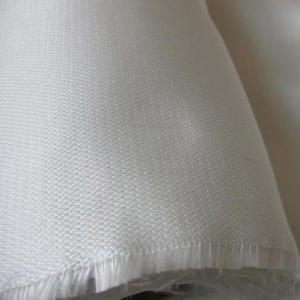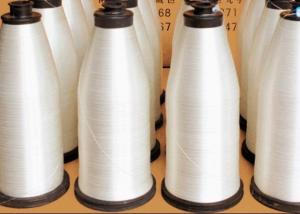Fiberglass Yarn Reinforced Corrosion Proofing Fiberglass Fabric
- Loading Port:
- Shanghai
- Payment Terms:
- TT OR LC
- Min Order Qty:
- 500 m²
- Supply Capability:
- 50000 m²/month
OKorder Service Pledge
OKorder Financial Service
You Might Also Like
Fiberglass Fabric for Corrosion Proofing Field
Fiberglass Fabric Introduction:
Fiberglass fabric is weaved by high quality fiberglass,as a kind of engineering material,which is
many excellent characteristics:
flame-resisting,corrosion resistant,high strength,heat resistance.stable structure,good chemical resistance,durability.
Fiberglass Fabric Features:
Warp and weft yarns are parallel arrangement as flat situation, with uniform tension;
Fiber is aligned with large consistency, stable and easy operation;
Good moldability, fast and complete wet out in resins, resulting in high productivity;
Good transparency and high strength of composite products.
Fiberglass Fabric Specification:
mark | Fiber consistency(ends/ cm) |
Area weight (g/ m2) |
Thick-ness (mm) |
Width (cm) |
Length (mm) | Breaking strength(N)≥ |
weave | |||
Warp direction | Weft direction | Warp direction | Weft direction | |||||||
EW200 | 16 | 12 | 200±20 | 0.2 | 90-130 | 300-1200 | 980 | 980 | ||
EW210 | 16 | 12 | 200±20 | 0.21 | 90-130 | 300-1200 | 1080 | 1080 | Twill weave | |
Plain weave | ||||||||||
EWR360 | 3.2 | 1.8 | 354±18 | 0.35 | 50-300 | 100 | 2000 | 2000 | ||
EW280 | 16 | 10 | 280±28 | 0.26 | 90-130 | 300-1200 | 1800 | 1800 | ||
EW300 | 14 | 10 | 320±32 | 0.3 | 90-130 | 300-1200 | 1500 | 1500 | ||
EW430 | 20 | 12 | 420±42 | 0.43 | 90-130 | 300-1200 | 2000 | 2000 | Broken twill | |
EWR136 | 10 | 10 | 136±13 | 0.136 | 100 | 200 | 850 | 850 |
Plain weave | |
EWR200 | 8 | 7 | 200±20 | 0.21 | 100 | 200 | 1200 | 1200 | ||
EWR400 | 3.6 | 3.2 | 400±30 | 0.4 | 100 | 50-100 | 2500 | 2500 | ||
EWR600 | 2.6 | 2.5 | 600±50 | 0.6 | 100 | 40KG | 4000 | 4000 | ||
EWR580 | 2.5 | 2.3 | 576±29 | 0.58 | 100 | 40KG | 3850 | 3850 | ||
EWR800 | 1.8 | 1.8 | 800±60 | 0.8 | 100 | 40KG | 4600 | 4600 | ||
Product Show
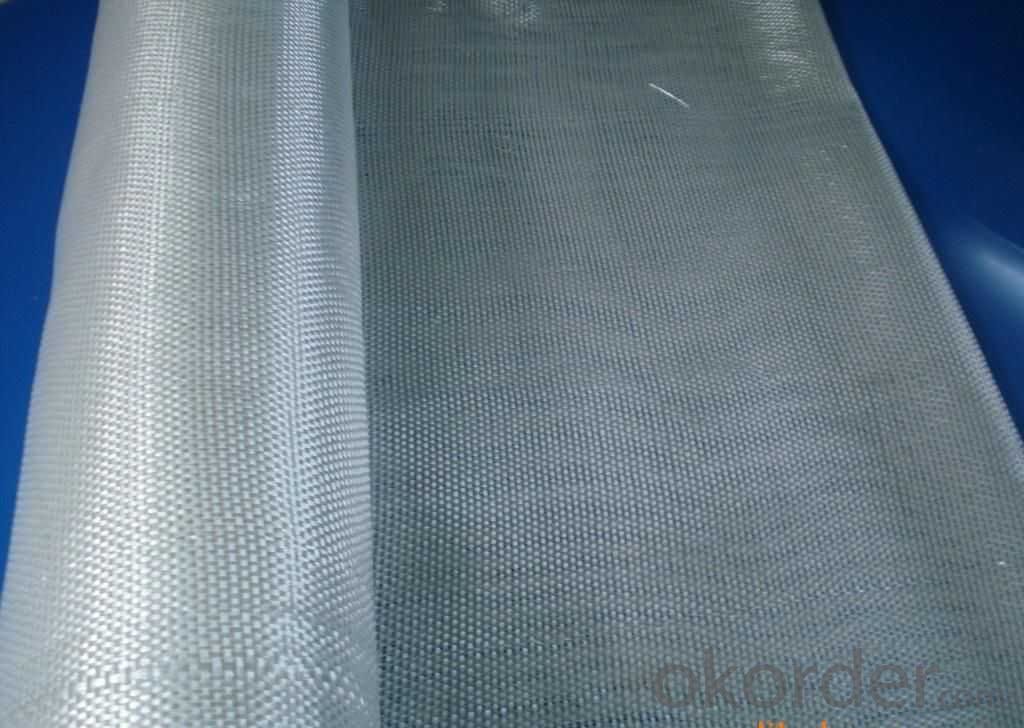
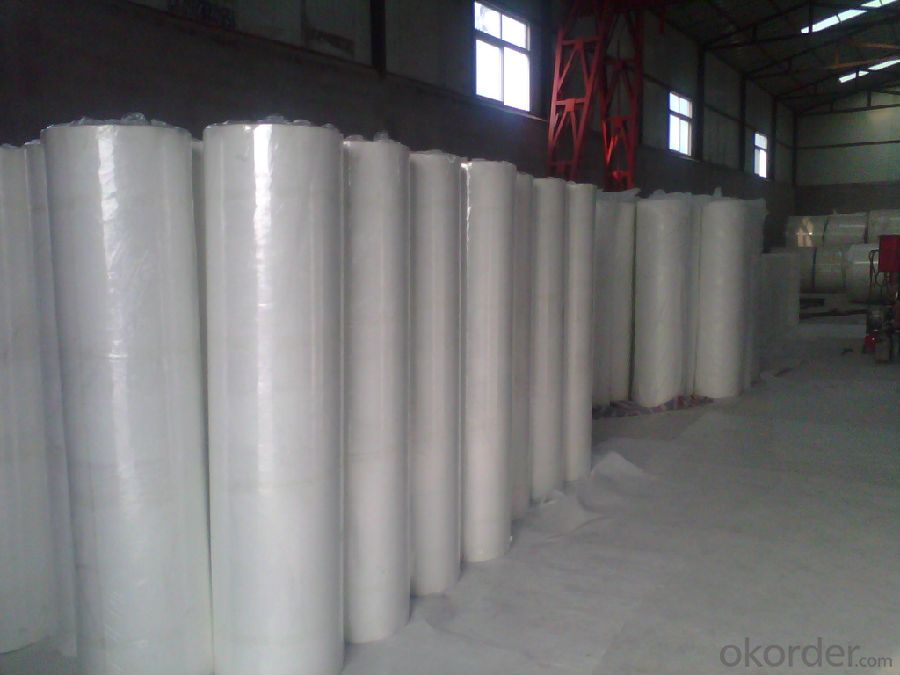
Fiberglass Fabric Usage:
E-glass woven roving is a schistose double faces reinforcement fabric that is weaved into from roving in directly.
E-glass fiber fabric (thin fabrics with thickness from 0.025 to 0.09mm) is suitable for electrical isolation mica product, wax cloth as the reinforcement materials.
E-glass woven roving applys to all kinds of polyester reinforcement system, (such as unsaturated polyester resin, vinylite,epoxy resin and phenolic resin.
E-glass woven roving is a high performance reinforcement material. It is widely used in hand lay-up and machinery processing products, (such as vessel, container, airplane and vehicle component, furniture, athletic facilities and other industry.
FAQ
1.Package of Fiberglass Fabric?
Fiberglass fabric is wound on a paper tube with inner diameters of 50. 8, 76 or 152mm. Each roll is wrapped in a plastic bag, then to be packed in a carton box. The rolls are to be horizontally placed.
Width (cm): 90, 100, 127
Length (m): 100, 200, 300, 400
2.Storage of Fiberglass Fabric?
Store rolls in a cool, dry location
Protect rolls from weather and other damage.
3.If sample available if needed?
We aim to offer our customer best Products&Service,samples are allowed if necessary.
- Q: How does the surface texture of fiberglass yarn impact its adhesion to other materials?
- The surface texture of fiberglass yarn plays a significant role in determining its adhesion to other materials. The texture of the yarn refers to the characteristics of its surface, such as smoothness, roughness, or the presence of any irregularities. A smooth surface texture generally results in lower adhesion to other materials. This is because smooth surfaces offer less surface area for bonding, reducing the contact points between the yarn and the other material. As a result, the adhesion strength may be compromised, leading to potential delamination or weak bonding. On the other hand, a rough or textured surface texture of fiberglass yarn enhances its adhesion to other materials. The roughness increases the surface area available for bonding, providing more contact points between the yarn and the other material. This increased surface area allows for a stronger bond and improved adhesion strength. The irregularities on the surface of the yarn also promote mechanical interlocking, further enhancing the adhesion. Furthermore, the surface texture of fiberglass yarn influences the type of adhesive used for bonding. For smooth surfaces, adhesives with stronger chemical bonds may be required to compensate for the reduced surface area. In contrast, rough surfaces may allow for the use of adhesives with lower bond strength, as the mechanical interlocking provided by the texture can supplement the adhesive bond. In summary, the surface texture of fiberglass yarn is a critical factor in determining its adhesion to other materials. A smooth surface may result in lower adhesion strength, while a rough or textured surface enhances the bond by increasing the surface area and promoting mechanical interlocking. Proper consideration of the surface texture is essential when selecting an adhesive or evaluating the suitability of fiberglass yarn for specific applications.
- Q: Can fiberglass yarn be used for high-performance applications?
- Fiberglass yarn possesses exceptional qualities, including strength, durability, and resistance to heat and chemicals, which render it suitable for a wide array of demanding applications requiring high-performance. Notably, the aerospace and automotive industries frequently employ fiberglass yarn to craft robust yet lightweight components. Likewise, the construction sector relies on it to reinforce concrete structures and manufacture high-pressure hoses, electrical insulation, and diverse filter types. Furthermore, fiberglass yarn assumes a pivotal role in producing sports equipment like tennis rackets, hockey sticks, and surfboards, ensuring superior performance and long-lasting durability. In conclusion, fiberglass yarn stands as a versatile material capable of effectively serving various high-performance applications.
- Q: Can fiberglass yarn be used in ballistic applications?
- Indeed, ballistic applications can benefit from the utilization of fiberglass yarn. Renowned for its exceptional strength-to-weight ratio, fiberglass yarn proves to be an optimal material for endeavors demanding resilience against forceful impact and penetration, such as ballistic protection. The inherent qualities of the yarn, including its elevated tensile strength and impressive energy absorption capabilities, render it highly effective in intercepting projectiles and diminishing their impact. Furthermore, the versatility of fiberglass yarn allows for its incorporation into fabrics or composites through weaving or layering, thus facilitating diverse design possibilities and augmenting its ballistic attributes. Its remarkable resistance to heat and chemicals further bolsters its suitability for ballistic applications. In conclusion, the integration of fiberglass yarn in ballistic undertakings offers heightened safeguarding and longevity.
- Q: What are the care instructions for fiberglass yarn products?
- Depending on the specific product, the care instructions for fiberglass yarn products may vary. However, here are some general guidelines to keep in mind: 1. Washing: To wash fiberglass yarn products, you should either hand wash them or use a gentle cycle on a washing machine with cold water. It is crucial to avoid hot water, as it can harm the fibers. Additionally, make sure to use a mild detergent specially formulated for delicate fabrics. 2. Drying: After washing, gently remove excess water from the product by squeezing it without wringing or twisting the fabric. Then, lay the item flat on a clean towel to allow it to air dry. Hanging fiberglass yarn products is not advisable, as it can stretch or distort their shape. 3. Ironing: If necessary, iron the product using a low or synthetic setting. To protect the fabric from direct heat, place a thin cloth between the iron and the item. It is important to avoid using steam, as it can cause damage. 4. Storage: When fiberglass yarn products are not in use, store them in a cool and dry location to prevent the growth of mold or mildew. Direct sunlight should be avoided, as it can cause fading or discoloration. 5. Special care: Keep in mind that certain fiberglass yarn products may have specific care instructions based on their construction or design. Always consult the manufacturer's recommendations for any special care requirements. Remember that fiberglass yarn products are delicate, so handle them with care to prevent snagging or tearing. By following these care instructions, you can maintain the quality and longevity of your fiberglass yarn products.
- Q: What are the different deniers available for fiberglass yarn?
- There are several different deniers available for fiberglass yarn, which refer to the thickness or fineness of the individual fibers within the yarn. Some common deniers for fiberglass yarn include 300D, 600D, and 1200D. The denier of fiberglass yarn is determined by the weight in grams of 9000 meters of the yarn. A lower denier such as 300D indicates a finer and lighter yarn, while a higher denier like 1200D suggests a thicker and heavier yarn. The choice of denier for fiberglass yarn depends on the specific application and desired properties. A finer denier may be suitable for applications that require flexibility, softness, and a smoother appearance. On the other hand, a higher denier yarn may be preferred for applications that require strength, durability, and resistance to abrasion. It's important to note that the denier of fiberglass yarn can also affect its other characteristics, such as tensile strength, heat resistance, and electrical conductivity. Therefore, when selecting a denier for fiberglass yarn, it is crucial to consider the specific requirements of the intended use to ensure optimal performance.
- Q: Is fiberglass yarn safe for skin contact?
- Yes, fiberglass yarn is safe for skin contact when used properly. Fiberglass yarn is made from fine fibers of glass that are woven together to create a strong and durable fabric. It is commonly used in various applications such as insulation, textiles, and even in certain types of clothing. When in contact with the skin, fiberglass yarn does not pose any immediate health risks. However, it is important to note that direct and prolonged exposure to fiberglass fibers can cause irritation and itching due to the tiny glass particles irritating the skin. In some cases, it can even lead to more severe allergic reactions. To minimize the risk of skin irritation, it is recommended to avoid direct and prolonged contact with fiberglass yarn. If you need to handle fiberglass yarn or work with materials that contain fiberglass, it is advisable to wear appropriate protective clothing, such as gloves and long-sleeved shirts, to prevent direct contact with the skin. Additionally, it is crucial to follow proper handling and cleaning procedures when working with fiberglass yarn to avoid dispersing loose fibers into the air. Inhaling fiberglass particles can be harmful to the respiratory system. Therefore, it is important to handle fiberglass yarn in well-ventilated areas or use appropriate respiratory protection if necessary. In summary, fiberglass yarn is generally safe for skin contact as long as precautions are taken to minimize direct exposure and proper handling procedures are followed. It is always recommended to consult the manufacturer's instructions and take necessary safety measures to ensure the safe use of fiberglass yarn.
- Q: Can fiberglass yarn be used for insulation in electrical cables?
- Certainly! Insulation in electrical cables can be achieved by utilizing fiberglass yarn. Comprised of delicate glass fibers, this material is skillfully woven to create a durable and adaptable fabric. Its remarkable thermal insulating characteristics and ability to endure elevated temperatures render it a perfect choice for insulation purposes in electrical cables. By safeguarding cables against heat, moisture, and various environmental elements, fiberglass yarn insulation guarantees the secure and effective transmission of electricity.
- Q: What are the common flammability ratings of fiberglass yarn?
- The common flammability ratings of fiberglass yarn are typically classified as non-flammable or having a low flammability rating.
- Q: Can fiberglass yarn be used in the production of textiles for extreme weather conditions?
- Yes, fiberglass yarn can be used in the production of textiles for extreme weather conditions. Fiberglass yarn is known for its high strength and durability, as well as its resistance to heat, chemicals, and harsh weather conditions. These properties make it an ideal choice for producing textiles that need to withstand extreme weather conditions such as intense heat, cold, moisture, or UV radiation. Additionally, fiberglass yarn can provide insulation and protection against fire, making it highly suitable for applications in extreme weather conditions.
- Q: What are the common shrinkage rates of fiberglass yarn?
- The common shrinkage rates of fiberglass yarn can vary depending on various factors such as the manufacturing process, fiber composition, and specific application. However, on average, fiberglass yarn typically experiences a shrinkage rate of around 2-5%.
Send your message to us
Fiberglass Yarn Reinforced Corrosion Proofing Fiberglass Fabric
- Loading Port:
- Shanghai
- Payment Terms:
- TT OR LC
- Min Order Qty:
- 500 m²
- Supply Capability:
- 50000 m²/month
OKorder Service Pledge
OKorder Financial Service
Similar products
Hot products
Hot Searches
Related keywords
